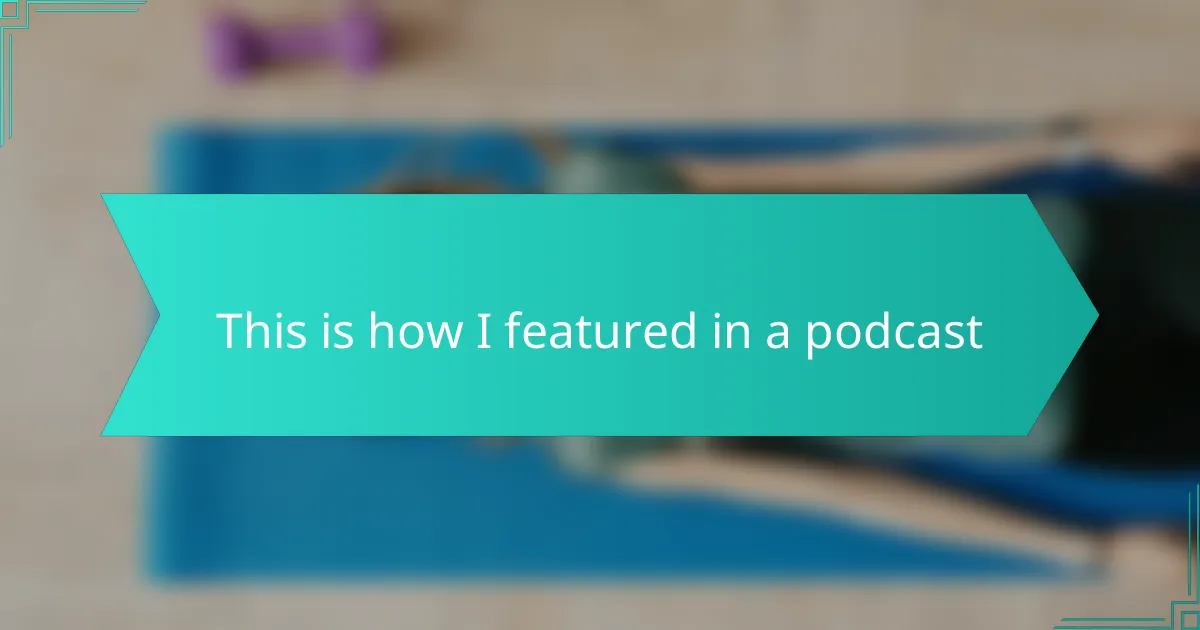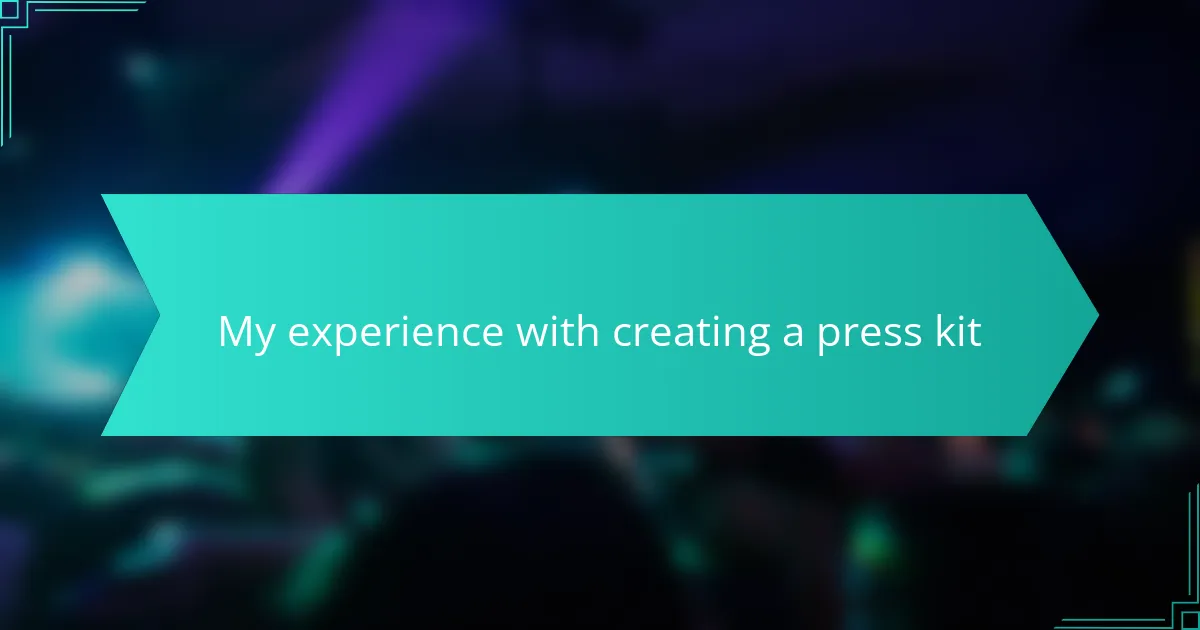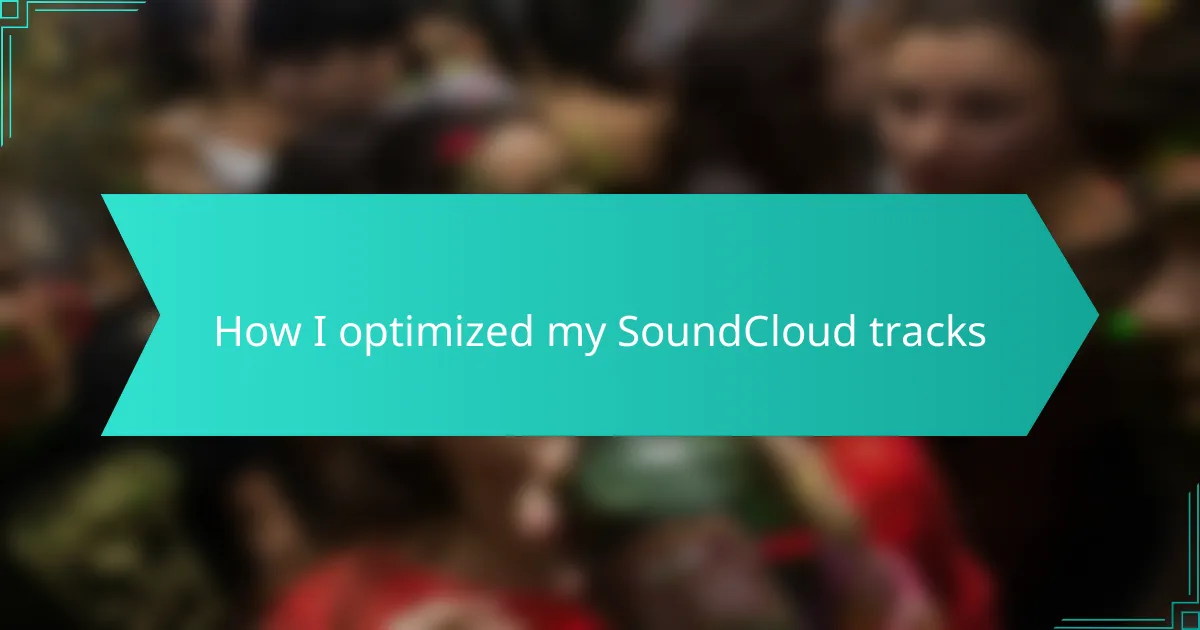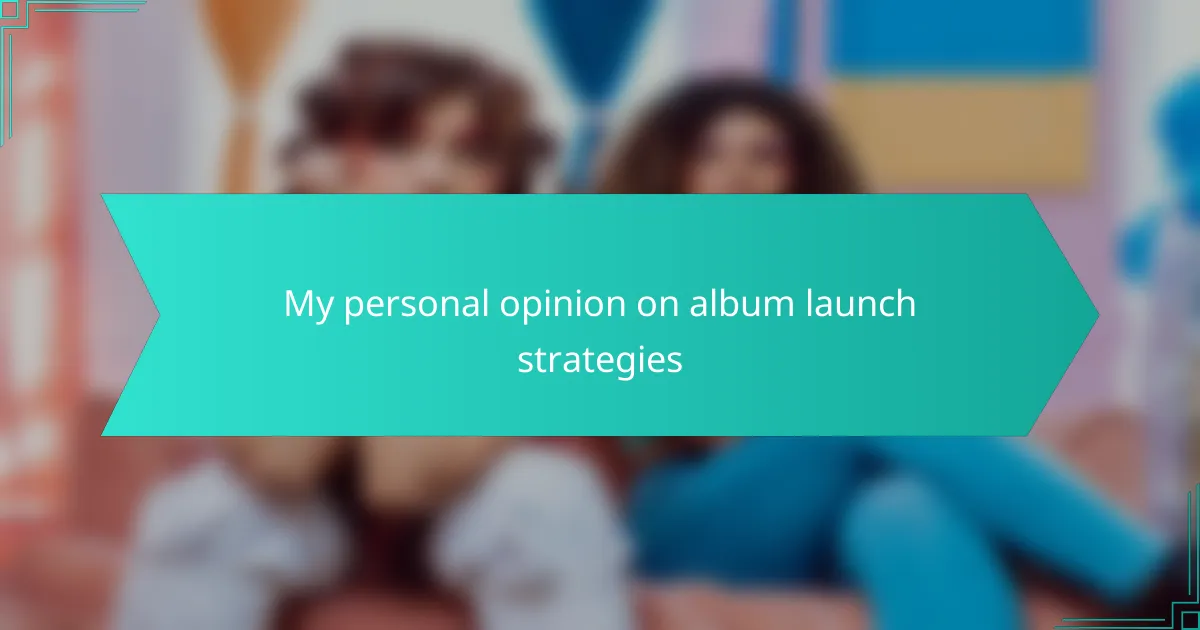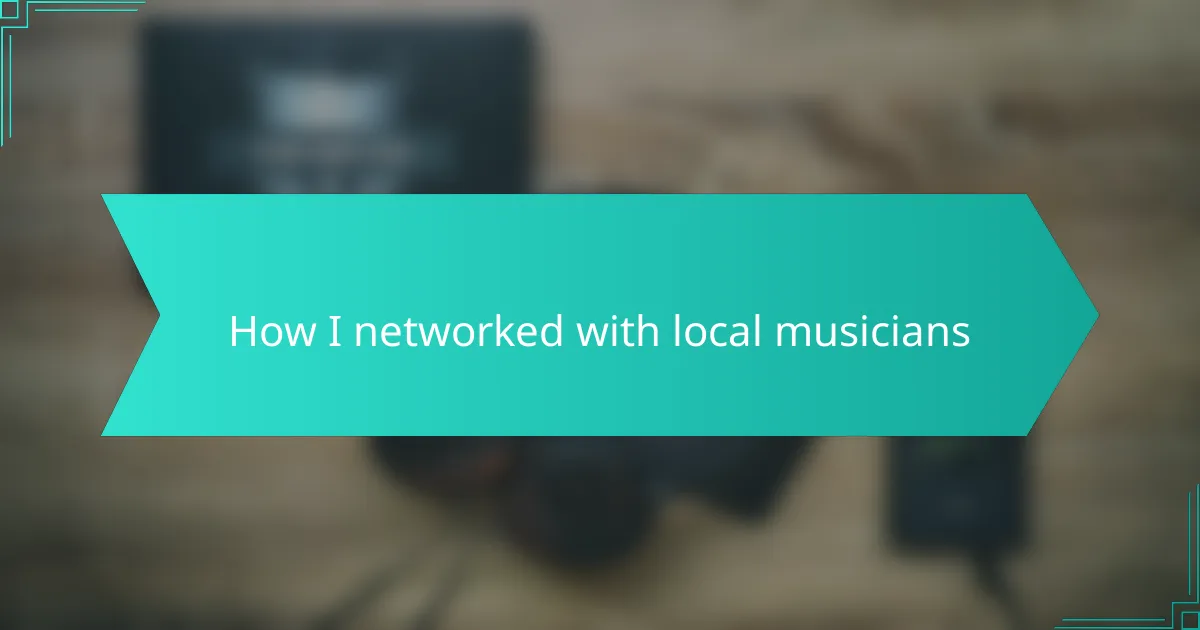Key takeaways
- Musician career paths, such as being an independent artist or signed to a label, offer distinct challenges and rewards, emphasizing the importance of staying true to one’s artistic vision.
- Media exposure, particularly through podcasts, can significantly enhance a musician’s credibility, reach, and connection with audiences, turning listeners into loyal fans.
- Preparing for podcast appearances requires understanding the audience and practicing key messages to ensure engaging and relatable conversations.
- Engaging with podcast audiences through authentic storytelling and personal anecdotes fosters meaningful connections and community around the music.
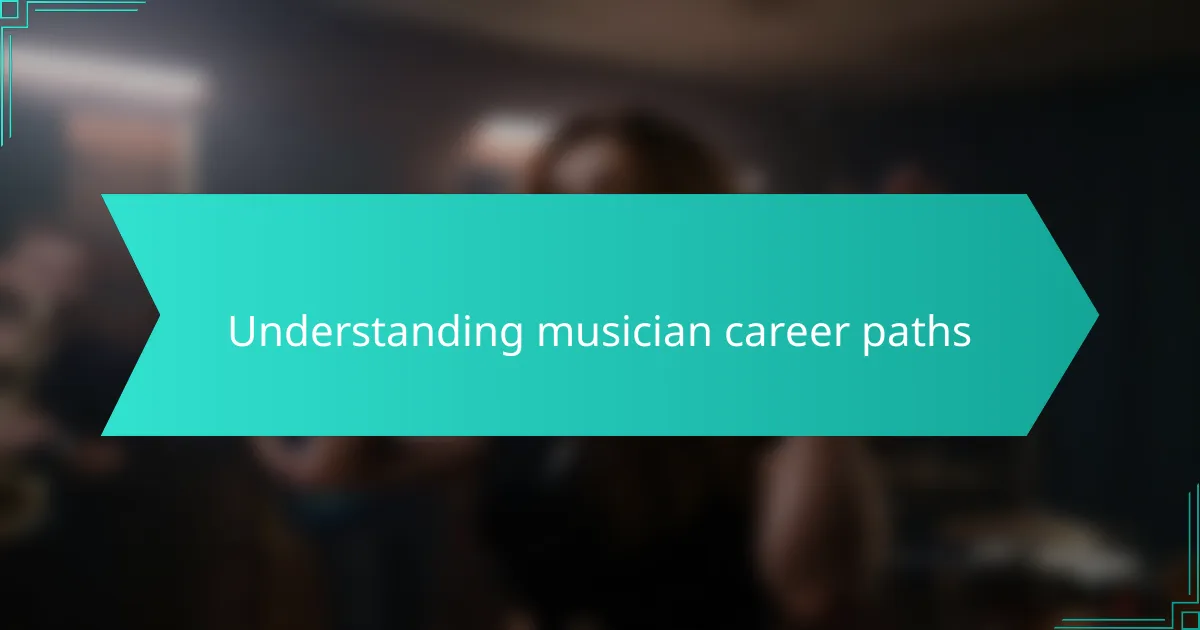
Understanding musician career paths
When I think about musician career paths, I’m reminded of the many routes that artists can take to find success. I’ve seen friends start out as independent musicians, pouring their hearts into original songs. Others have found success through partnership with bigger labels, which often brings a different kind of pressure but also greater exposure.
Making a choice about a career path in music isn’t always clear-cut. I remember grappling with my own decisions, weighing the freedom of being a solo artist against the stability that comes from being part of a band. Each path offers unique challenges and rewards; what resonates with me may not resonate with someone else. In my experience, it’s crucial to stay true to your artistic vision while being open to various opportunities.
Here’s a concise comparison of different musician career paths:
| Path | Description |
|---|---|
| Independent Artist | Creators who control their music and brand, fostering a direct connection with fans. |
| Signed to a Label | Musicians who work with a label for financial support and promotion but may sacrifice some creative control. |
| Session Musician | Performers who collaborate with multiple artists, offering their skills for various projects. |
| Composer/Songwriter | Writers who create songs for other artists, films, or commercials, focusing on crafting melodies and lyrics. |
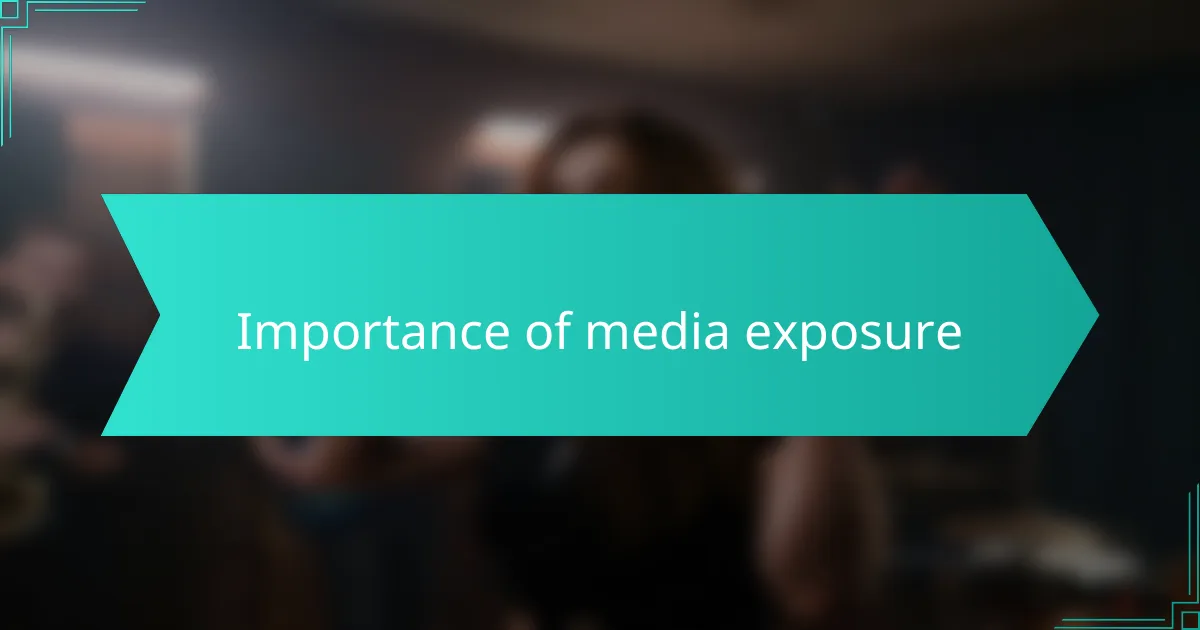
Importance of media exposure
Media exposure is a vital component for any musician looking to make a mark in the industry. I’ve personally felt the impact of being featured in a podcast; it opened up doors I didn’t even know existed. When listeners hear your voice and connect with your story, it transforms them from mere audience members into potential fans.
Think about it: how often do you discover new music through interviews or discussions online? I vividly remember a time I listened to an artist share their journey on a podcast; it inspired me to dive deeper into their work. Media exposure not only broadens your reach but also builds credibility, allowing audiences to trust and invest in your artistic vision.
I can’t stress enough how sharing personal stories can resonate with listeners. Embracing vulnerability in these conversations creates a stronger bond between you and your audience. It’s like inviting them into your creative process, which in turn fosters loyalty – and that can be a game-changer in a musician’s career.
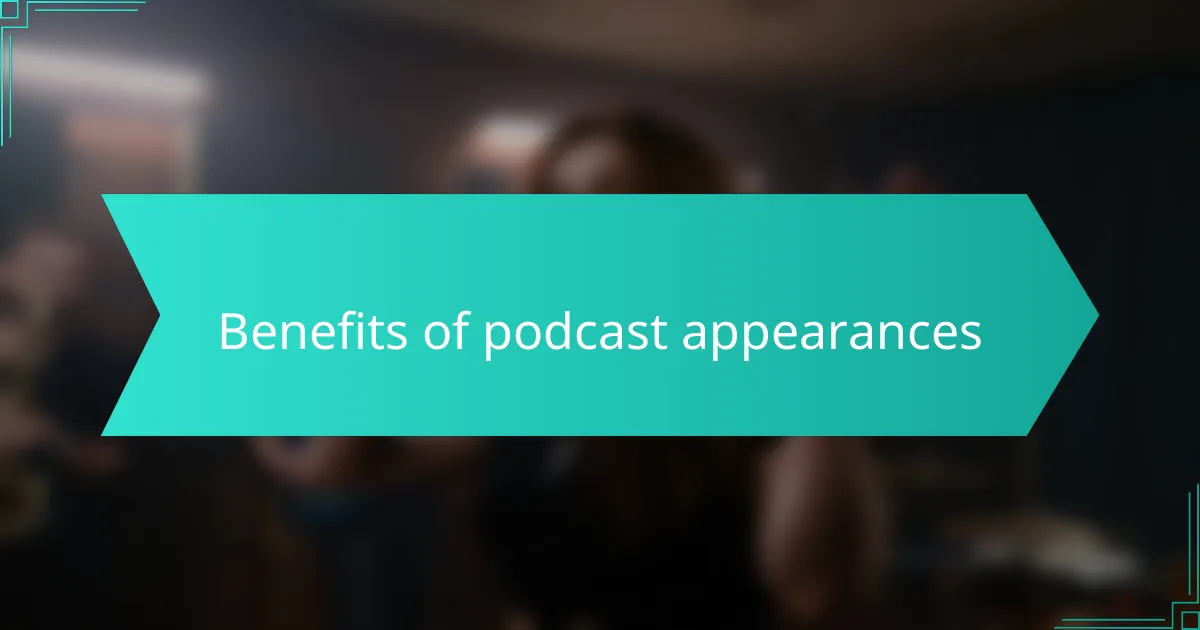
Benefits of podcast appearances
Once you step into the realm of podcast appearances, you tap into a network of listeners eager for connection. For me, participating in a podcast was like having a conversation with friends, where I could share my journey and musical inspirations. The beauty lies in how those stories can spark interest in new audiences who might not have discovered my work otherwise. How often have you found a new favorite artist through a candid chat?
Moreover, podcasts provide an intimate platform that written articles simply can’t replicate. I remember feeling a rush of excitement when I realized my audience could hear my passion and hear the nuances of my voice. It’s a personal touch that makes it easier for listeners to relate and engage. When I share my experiences and struggles, I notice listeners reflecting back their own journeys, creating an authentic connection that promotes loyalty.
Finally, appearing on podcasts can also enhance your networking opportunities. After sharing my story on a show, I found my inbox flooded with messages from other artists and industry professionals resonating with my experience. It underscores a vital benefit: not only visibility but also the chance to collaborate, creating a ripple effect that can lead to unexpected and rewarding partnerships in the future. Isn’t it fascinating how one conversation can open multiple doors?
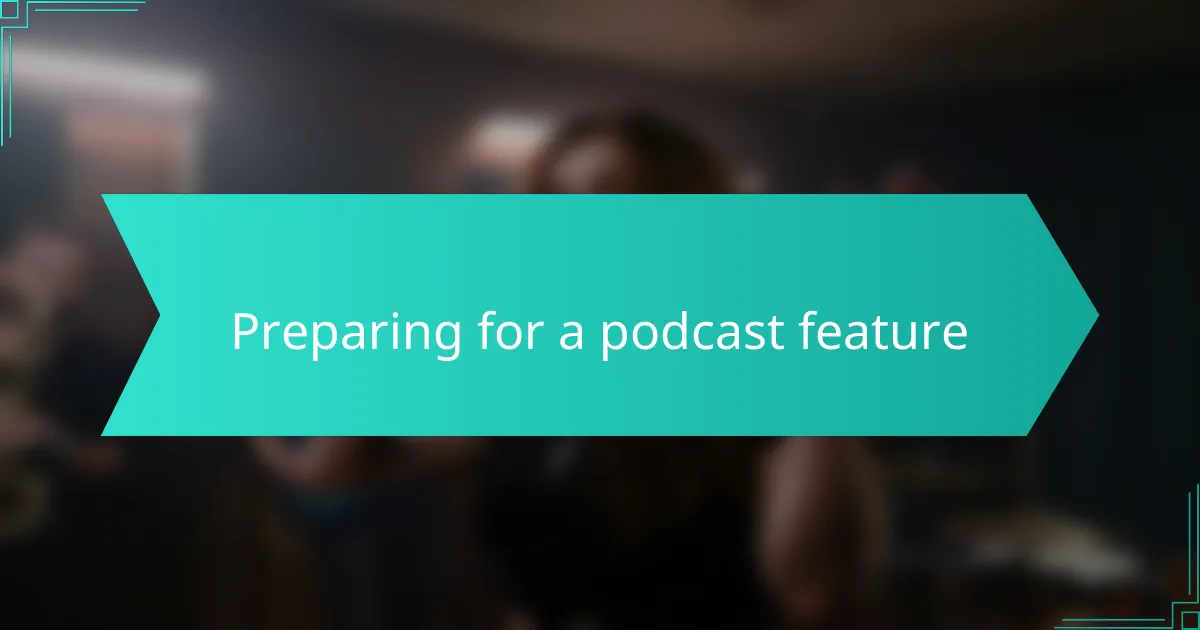
Preparing for a podcast feature
Preparing for a podcast feature can be both exciting and nerve-wracking. I remember the anticipation I felt leading up to my first appearance. It was crucial for me to not only understand the podcast’s audience but also to articulate my musical journey clearly and engagingly.
I found that researching the host and previous episodes helped me craft relevant talking points. It made me more confident knowing what to expect and how to connect with listeners on a personal level. Practice really does make a difference; rehearsing my key messages allowed me to feel more natural during the interview.
Here’s a quick comparison of what to prioritize when preparing for a podcast feature:
| Preparation Aspect | Importance |
|---|---|
| Understanding the Audience | High – Tailors your message effectively |
| Researching the Host | Medium – Helps build rapport |
| Rehearsing Key Messages | High – Increases confidence |
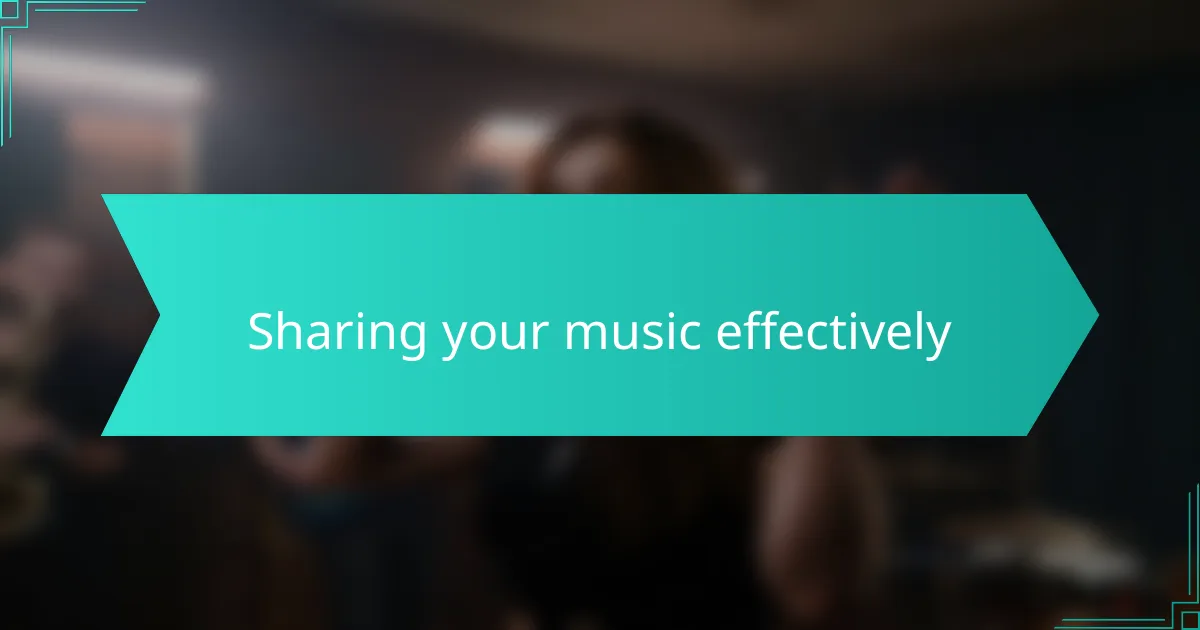
Sharing your music effectively
Sharing your music effectively goes beyond just posting a track online. It’s about creating a connection with your audience. I remember when I first shared my music on a podcast; it opened doors I hadn’t even anticipated. The host’s audience became my audience too, and that’s a moment I cherish.
Engaging storytelling while sharing your music can significantly amplify your reach. For me, talking about the inspiration behind my songs helped listeners relate on a personal level. I’ve found that when people know the story behind the music, they genuinely resonate with it.
Here’s a handy comparison of different platforms you’ll want to consider when sharing your music:
| Platform | Key Features |
|---|---|
| Podcasts | Can showcase your personality; attracts dedicated listeners. |
| Social Media | Wide reach; allows for direct interaction with fans. |
| Streaming Services | Access to extensive music libraries; eases music discovery. |
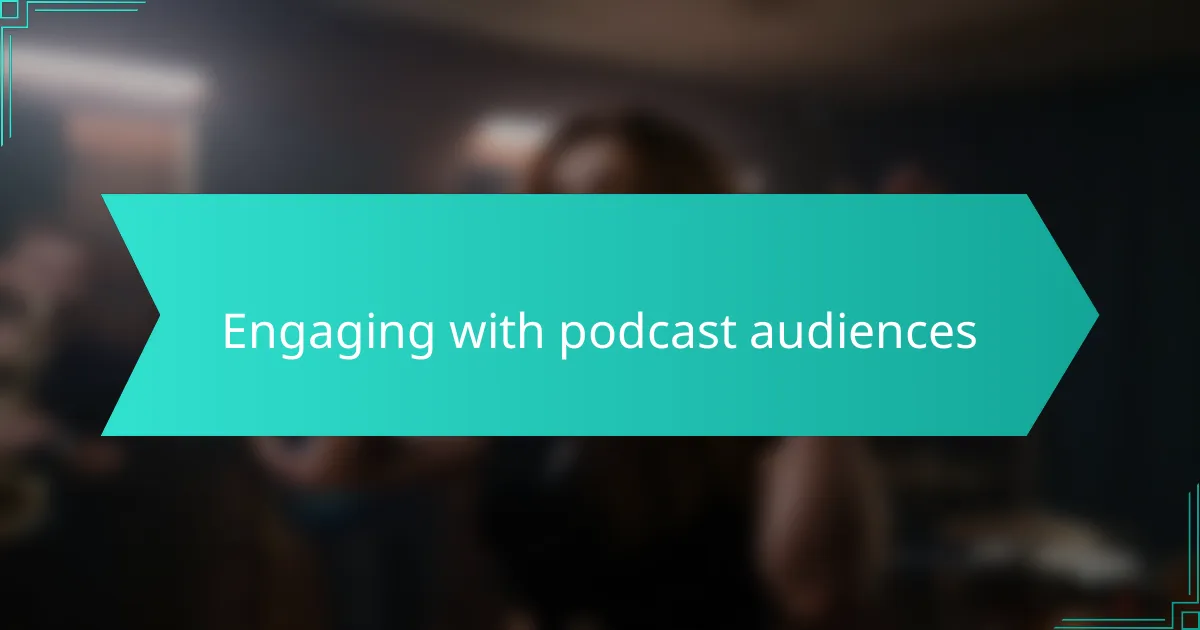
Engaging with podcast audiences
Engaging with podcast audiences is a dynamic experience that can significantly elevate a musician’s presence. When I first featured in a podcast, I realized that the audience isn’t just listening; they’re interacting with the artist’s story on a personal level. I vividly recall the feedback I received after sharing my struggles in the industry. It was incredible to connect with listeners who felt inspired by my journey.
One effective strategy to captivate podcast audiences is to share authentic stories that resonate with their experiences. By opening up, you not only draw them in but also create a lasting impact. Here are some ways to engage your audience:
- Personal anecdotes: Share stories that reflect your journey or hardships, making it relatable.
- Emotional connections: Discuss what drives you, helping listeners feel your passion.
- Interactive Q&A: Encourage questions from the audience, allowing a real-time connection.
- Call to action: Invite listeners to check out your music or social media, fostering ongoing engagement.
- Authenticity: Be genuine; audiences can sense when you’re being real or just following a script.
Each of these approaches not only draws in listeners but also cultivates a community around your music.
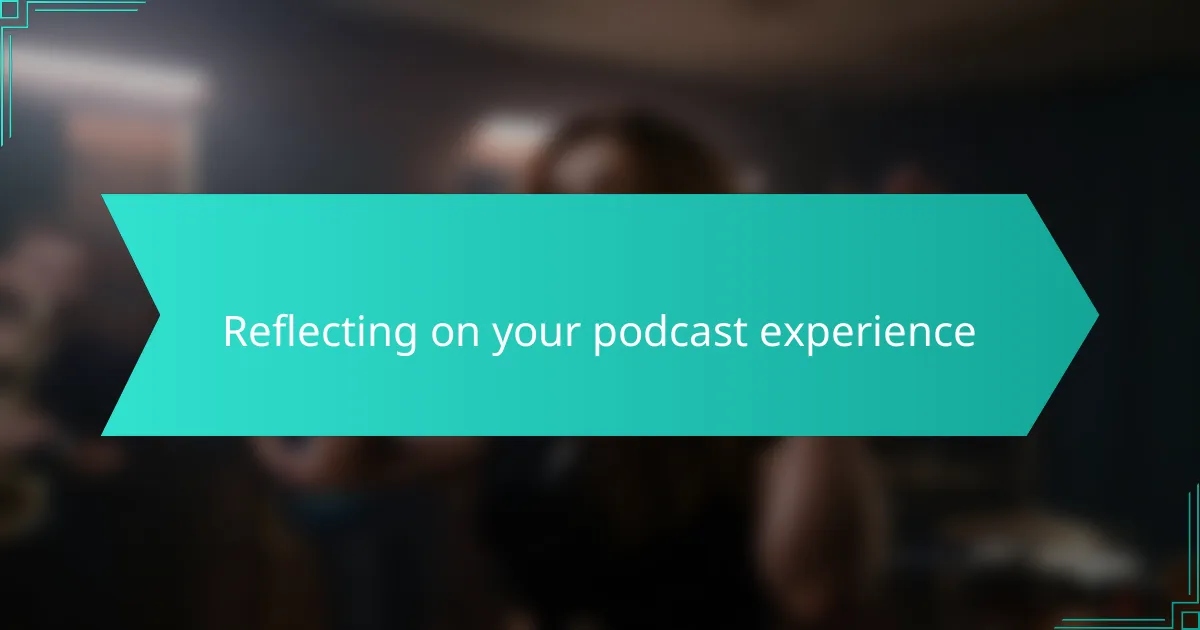
Reflecting on your podcast experience
Reflecting on my podcast experience, I often find myself marveling at the depth of connection it fosters. After my first appearance, I received messages from listeners sharing how my journey resonated with theirs. It made me realize that sharing our stories can create a profound sense of belonging—how often do we listen to someone’s struggle and think, “That’s exactly how I feel”?
Each podcast discussion is an opportunity for introspection. I remember revisiting my music after an episode aired, thinking about the themes I discussed. It challenged me to dive deeper into my songwriting and embrace the raw emotions that come with it. Isn’t it interesting how sharing can lead to personal growth?
As I reflect, I can’t help but appreciate the community that forms through these conversations. Engaging with listeners who connect with my story often leads to unexpected collaborations. It’s a reminder that our narratives can create ripple effects, inviting others into our artistic journeys. Don’t you think there’s something magical about that shared experience?
